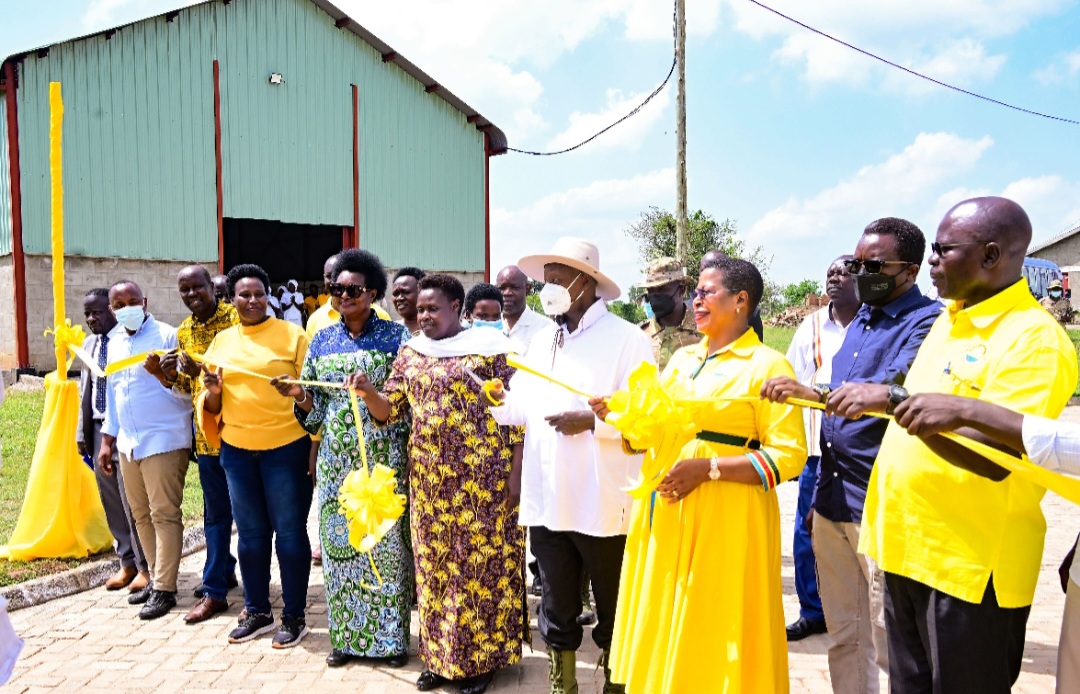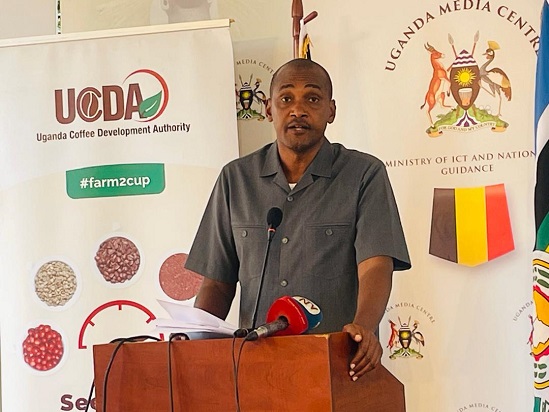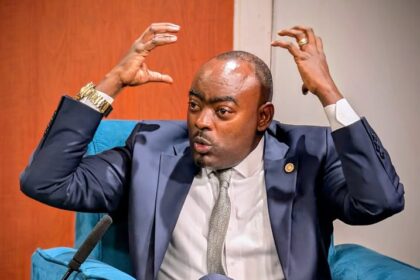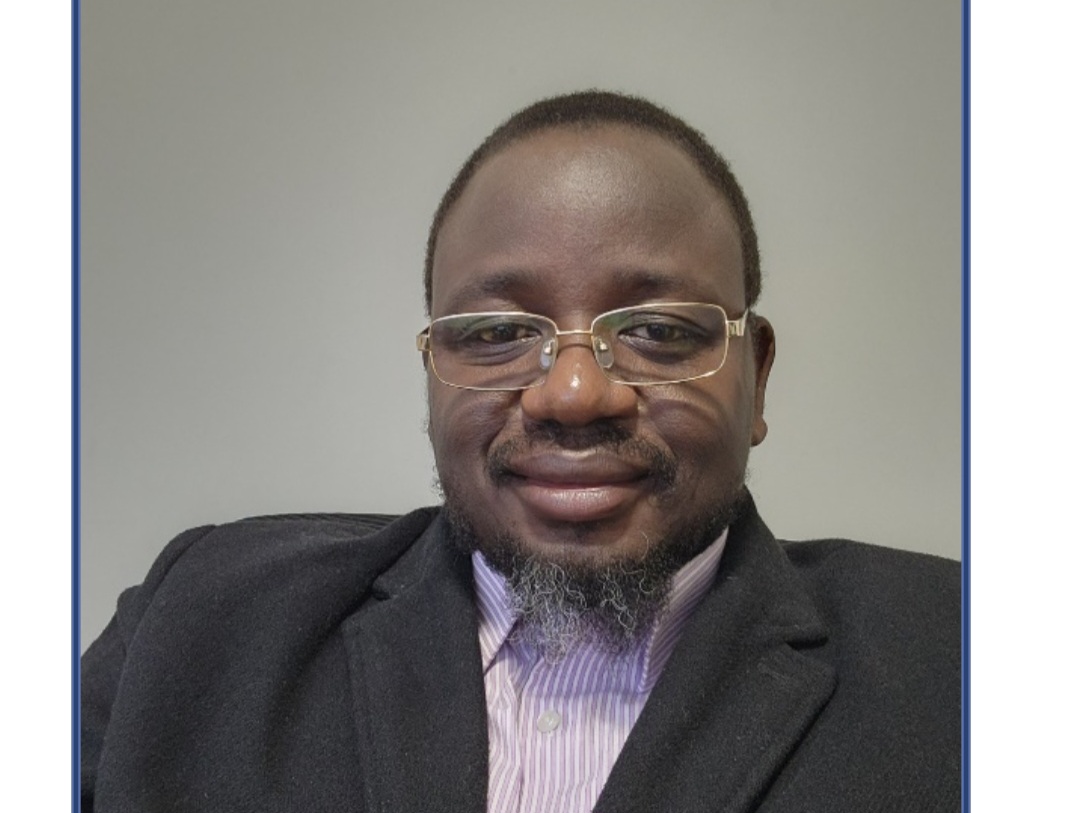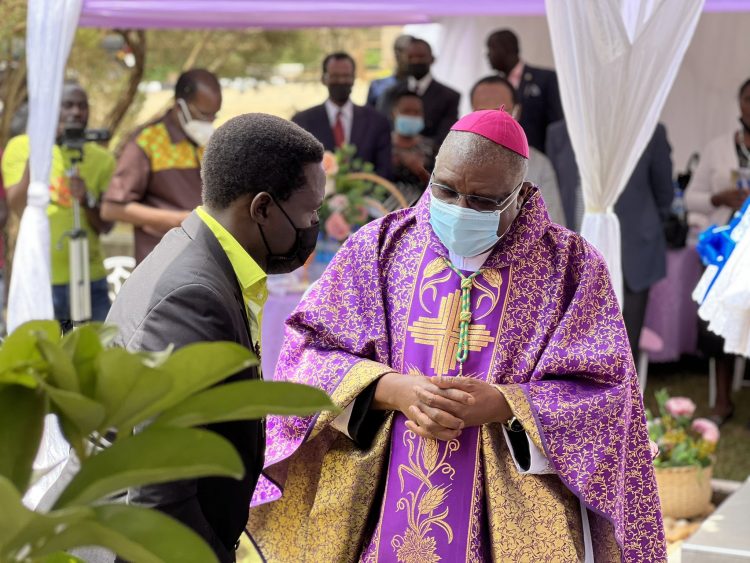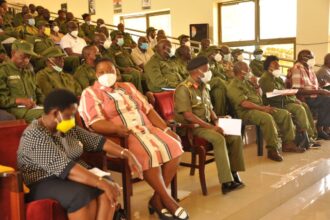President Yoweri Kaguta Museveni has issued a stern directive to Regional Police Commanders (RPCs), prohibiting the granting of police bond to individuals accused of embezzling funds for the Parish Development Model (PDM) and Emyooga programs.
Addressing the leaders of the Teso sub region at Kumi Municipal Grounds today, the President emphasised the importance of safeguarding funds meant to uplift Uganda’s village economies.
This was during the second day of the ongoing Presidential wealth creation assessment tour in the Teso Sub-region which commenced on Monday, November 18th,2024.
“I have received reports from ISO about individuals stealing PDM money. Some were arrested but given police bonds,” the President stated.
“I now direct the RPCs, no more police bonds for anyone who has stolen PDM or Emyooga money. If you give a police bond, I will ‘bond’ you myself.”
President Museveni also warned that such leniency undermines efforts to defend the village economy and vowed to engage the Chief Justice to put an end to these practices.
“This money is for transforming communities. If someone steals it, refunding alone is not enough, you must refund and also go to jail. Was it given to you as a gift?” he asked rhetorically.
“PDM and Emyooga funds are critical to Uganda’s development and must be protected at all costs. No one should play games with this money. We are transforming lives, and we won’t allow anyone to derail that mission,” he also noted.
The President also criticised the practice of deducting bank charges from PDM funds before they reach beneficiaries.
“I demand that the Ministry of Finance covers all bank charges. Recipients must receive their full amount, no deductions, no additions,” he declared.
On the other hand, President Museveni reiterated the need to change societal attitudes, which he referred to as “the problem of sleep.”
Drawing from his own experiences, he recounted how exposure to global history in the 1960s inspired him to challenge the belief that Africa’s challenges were insurmountable.
“The problem of Africa is sleep. It’s amazing how people can be so unaware of their potential. In the 1960s, some people told me that Banyankole could never change,” he remarked.
“I disagreed, my own mother, who was a traditional woman, changed after joining Christianity. She learned to boil milk, iron clothes, and knit. If she could change, why can’t we?”he inquired.
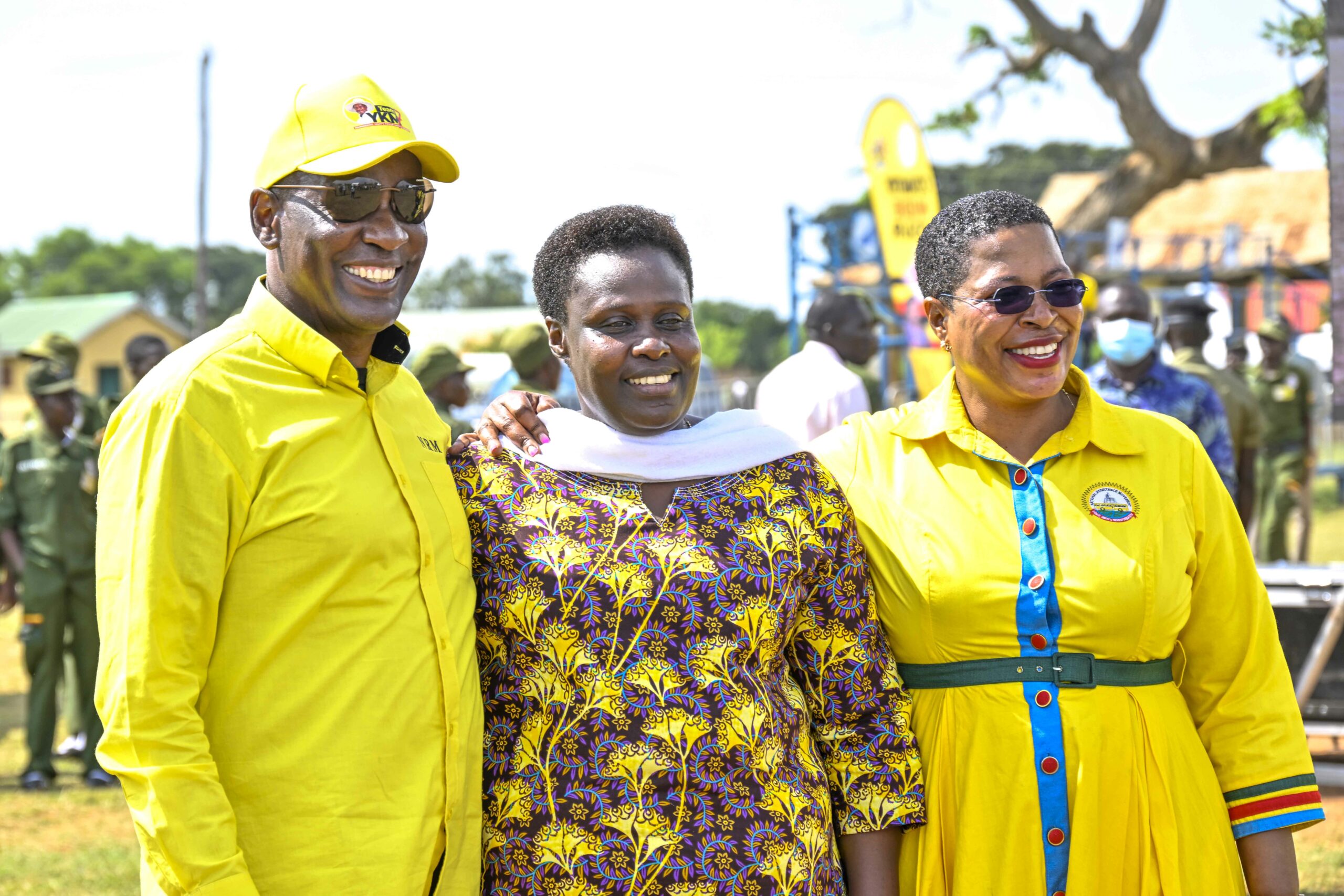
President Museveni also addressed environmental conservation and sustainable development, particularly the misuse of wetlands for rice farming.
He called for a shift towards fish farming as an alternative that benefits both the environment and the economy.
“I visited Limoto Wetland Restoration Center in Pallisa and found that when people stopped growing rice in the swamp and adopted fish farming, their income grew significantly. One family now earns sh 62m annually from fish ponds, compared to sh1m from rice farming,” President Museveni said.
He explained that fish ponds located at the edges of wetlands not only protect the environment but also provide a sustainable source of income.
“This approach restores the swamp, secures water for irrigation, and helps families get out of poverty,” he added.
The President expressed satisfaction with the impact of PDM in many parts of Uganda, noting that the initiative has enabled people to invest in livestock, poultry, and other income-generating activities.
President Museveni assured the public of continued support for PDM, with sh 100 million allocated annually per parish.
Additionally, he revealed plans to use centres like Serere to breed animals and multiply foundation seeds through zonal centres to further boost agricultural productivity.
He further shared a reflection on Uganda’s journey toward prosperity, emphasising the ideological differences that shaped the country’s economic and political landscape since the 1960s.
The President highlighted the strategies the NRM government adopted to transform Uganda’s economy and uplift its citizens.
“The issue of prosperity is not new to us. Even before independence, we debated it passionately as young people in the 1960s. Our vision was prosperity for all, but some of the older generation thought it was impossible.”
President Museveni recounted a conversation with a prominent figure at the Uganda Club, who argued that societal inequality was inevitable, likening it to the differing lengths of human fingers.
“I told him, that’s biology, sir, but we are talking about socio-economic equality. Let’s give everyone an equal opportunity to succeed,” the President remarked.
He further criticised the divisive politics of identity, which focuses on tribe and religion, noting that it hinders national unity and economic progress.
“Prosperity knows no tribe or religion. If someone from another tribe buys my milk or beef, they are supporting my prosperity. This is why we rejected identity politics and embraced the politics of shared interests,” President Museveni said.
By the late 1960s, the ideological divide between those advocating for “prosperity for all” and others who supported “prosperity for some” became evident.
This divide, coupled with the turbulent political environment, prompted the emergence of alternative movements, such as the National Resistance Army (NRA) which later transformed into the National Resistance Movement (NRM).
“When Amin came to power, we decided that advising was no longer an option. We began building an alternative force politically and militarily. By 1986, when we came into government, the country had lost 24 years with no army, no development, and no economy,” he said.
Reflecting on the government’s post-1986 strategy, President Museveni outlined four key sectors that could drive wealth creation.
The President encouraged Ugandans to engage in commercial agriculture, including livestock, crops, fisheries, and agroforestry, as a pathway to personal wealth and job creation.
He noted that small-scale traditional farming could not lift families out of poverty.
“We moved from subsistence agriculture to commercial agriculture, emphasising productivity and profit,” he said.
He highlighted the growth of the manufacturing sector, now employing 1.2 million Ugandans, surpassing the 480,000 employed in public service.
“From small dairy coolers to large factories, manufacturing has become a significant employer and driver of wealth,” President Museveni observed.
“The services sector, including tourism, transport, professional services, and religious work, has also flourished. We estimate about four million Ugandans are employed in this sector,” the President stated.
President Museveni also pointed to the rising potential of ICT, such as business process outsourcing, where Ugandans can work remotely for international companies.
“With strong telecoms and internet infrastructure, our people can now earn globally competitive wages,” he said.
He also raised concerns about land fragmentation due to inheritance practices, which limit the economic potential of agriculture.
The President advised communities to adopt intensive farming methods on smaller plots, focusing on high-value crops and activities like coffee, fruit farming, poultry, and fish farming.
“From as early as the 1990s, we identified seven key activities that could generate significant income on small plots of land. These included one acre of coffee, one acre of fruits, one acre for dairy, and others like poultry and fish farming,” President Museveni elaborated.
On her part, the Vice President, H.E Jessica Alupo commended President Museveni for his ongoing regional tours, emphasising their importance in mobilising Ugandans to embrace wealth creation initiatives and economic transformation.
“I am humbled to welcome you to Teso Subregion for this critical zonal tour, which follows successful visits to Acholi Subregion, West Nile, Greater Masaka, and Bukedi,” H.E Alupo said.
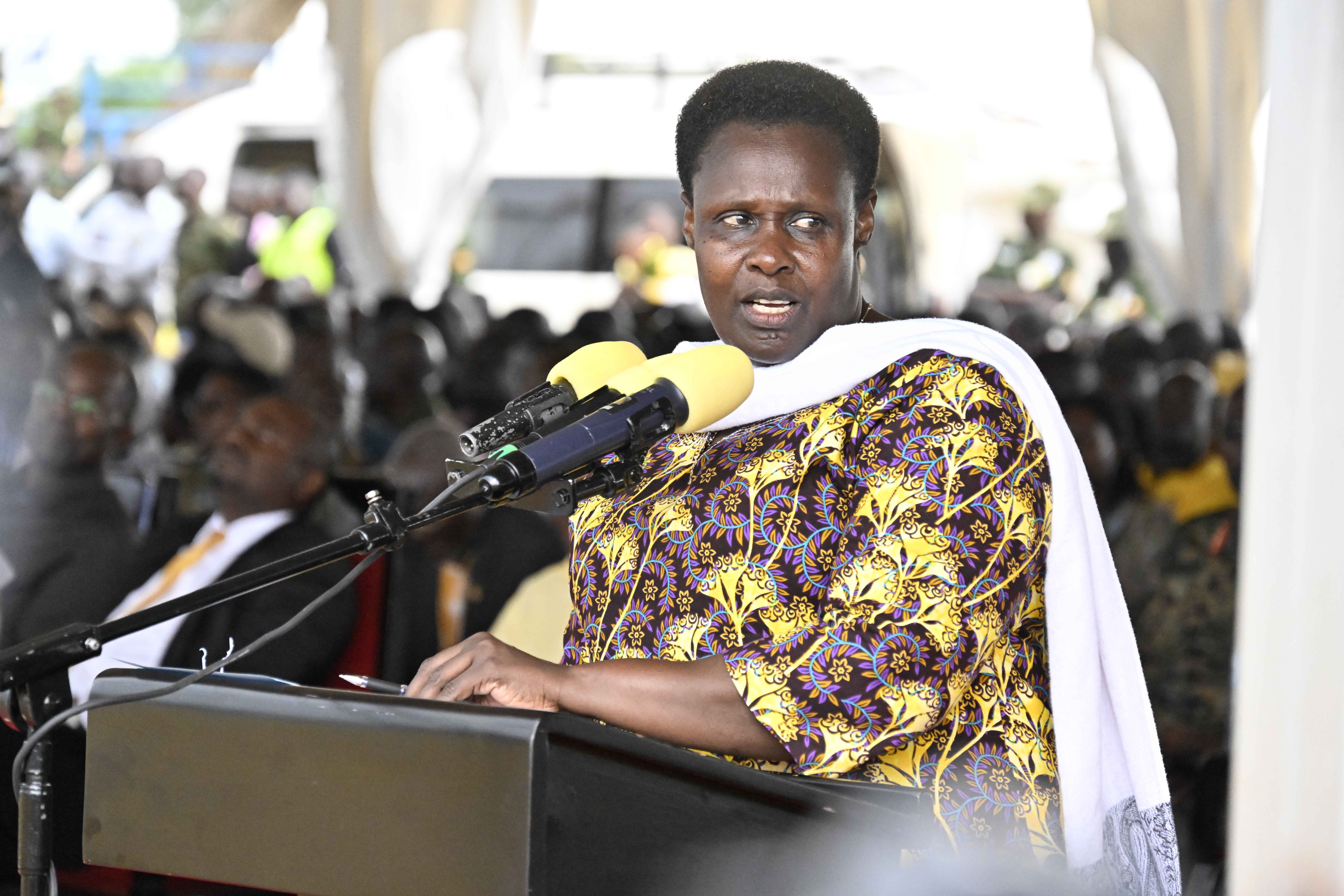
She noted that the tours, conducted under the theme “Securing Your Future Through Wealth Creation and Shared Prosperity,” have been instrumental in awakening and mobilising Ugandans toward meaningful economic participation.
The Vice President also highlighted the government’s initiatives, such as Operation Wealth Creation (OWC), Emyooga, and the Parish Development Model, as transformative tools helping Ugandans transition into the money economy.
“You have consistently and tirelessly ensured that Ugandans are awakened to the realities of poverty alleviation and job creation. Through initiatives like OWC, Emyooga, and PDM, many of our people are slowly embracing the money economy,” Alupo stated.
However, she acknowledged the need for continued effort to uplift the remaining 39% of Ugandans still engaged in subsistence farming.
“As leaders, we have a responsibility to lift these people by embracing the President’s “ekibalo” concept, ensuring they make themselves relevant in the economy,” she said.
H.E Alupo emphasised the importance of promoting import substitution and export-oriented production to strengthen Uganda’s economy.
She also urged the people of Teso to embrace the government’s four-sector strategy and seven activities outlined in the four-acre model.
“These approaches focus on leveraging agriculture, manufacturing, services, and ICT as key drivers of prosperity,” she explained. “Let us work together as a team to ensure Uganda achieves middle-income status.”
The Vice President also called upon the people of Teso to heed to the NRM messages and actively participate in wealth creation efforts.
“Together, we can ensure peace and prosperity for all. Let us seize this opportunity to transform our lives and our communities,” H.E Alupo concluded.
The Speaker of Parliament, Rt. Hon. Anita Among expressed gratitude to the President for his unwavering commitment to the development of Teso Subregion, highlighting his efforts in empowering the area through government initiatives such as the PDM.
“We are honoured to welcome you to Teso. Your visit shows that you truly value this region, and it is evident in the empowerment programs you have implemented here,” the Speaker said.
She commended the President for prioritising accountability during his regional tours, noting that such efforts reinforce public confidence.
“As Parliament, we have appropriated funds for PDM, Emyooga, and other poverty alleviation programs. Your presence here to ensure accountability is a testament to your dedication not just to Teso but to the entire country,” she added.
The Speaker also raised the issue of breeding centres, appealing to the President to consider establishing such facilities in the region to boost livestock production.
“I want to reiterate the need for breeding centres. We kindly request your support in planning and establishing these centres. The people of Teso, Your Excellency, love and appreciate you,” she said.
Capt. Mike Mukula , the NRM Vice chairperson- Eastern region also commended President Museveni for his unwavering leadership, crediting him for restoring and maintaining peace in Teso and across Uganda.
Capt. Mukula described President Museveni as a God-sent leader who has transformed the nation.
“Teso once faced a primary problem of insecurity, but you solved it. One time, you said that if peace returned to Teso and Karamoja was disarmed, the region would thrive. You have fulfilled that promise,” he said.
“While many thought Uganda was ungovernable, you have led this country with remarkable peace and stability. For this, we are eternally grateful,” he added.
The event was also attended by Dr. Chris Baryomunsi, the Minister of ICT and National Guidance, Hon. Kenneth Omona , the Minister of State for Northern Uganda, Hon. Peter Ogwang, the Minister of State for Sports , Rt. Hon. Richard Todwong, the Secretary General of the NRM , Hon. Hellen Adoa, the Minister of State for Fisheries , Hon. Hellen Asamo, the Minister of State for Disability Affairs, Members of Parliament, religious and cultural leaders, among others.
Do you have a story in your community or an opinion to share with us: Email us at Submit an Article




